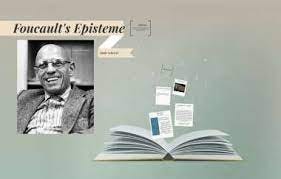Most people forget that science and technology are the largest influences on society and perhaps on their lives. Other cultural areas are far less significant than we often believe.
It's easy to make this mistake, in an era when attacks on freedom of speech - on the entire Enlightenment intellectual heritage - are so ferocious. It's worth remembering how often (despite their idiocy) such attacks misappropriate the very language of science, especially in the ludicrous claim to be 'evidence-based'.
In essence, these fraudsters are openly acknowledging what I say, by their blatant misuse of science. This has never been more apparent than during the Covid period.
The truth is, many non-scientists are jealous and resentful of science's power, prestige and unparalleled achievements. Instead of - correctly - worrying about how to democratically control those, they simply want them for themselves. Hence the appropriation, the bogus use of scientific prefixes in ‘Social Science’ or ‘Political Science’. It's like those ‘egalitarians’ who in truth have no problem with inequality, provided they're its beneficiaries.
I've been struck by how intellectually insecure many Arts graduates are (often with good reason) so that they overcompensate, through dogma and fanaticism. This explains their delight and gullibility, in worshipping socially-constructed 'theories' - of which 'wokedom' is the 24-carat exemplar.
The fact that this nonsense cannot withstand a second's rigorous interrogation is, sadly, less of a problem than it should be. Its proponents simply switch to emotive blubbering, cancelling people and - ultimately - violence. In fact, they often do those things first.
Look also at so-called 'Critical Theory', in the study of literature; especially the utter-garbage by Foucault or Derrida. It's often pompously just called 'Theory', as if it were some unifying theory of existence, on a par with the one sought by physicists. A truly ridiculous stance, that shames so many of our great universities, who have fallen for this snake-oil.
Yes, it can be a fascinating creative activity, but it's no more of a 'theory' than are astrology, dwarf-throwing or fart-lighting. At its most absurd - and influential - it posits that reality is entirely subjective, defined by the individual's use of language and how that fits into the 'power-structures' for the 'episteme' under discussion.
As has been remarked, no one believes that when flying at 30,000 feet in a plane, their life entirely dependent on the basics laws of aerodynamics. No one believes that some other socially constructed ‘version of reality’ would keep them from crashing down to the ground.
Nor do the relativist buffoons observe their dogma when recycling Covid propaganda. Why not suggest that people get injected with Old Hooky bitter, to fit a particular ‘episteme’? But no, suddenly science becomes unquestionable, because they like (actually, misunderstand) what it says.
As Roger Scruton observed: Anyone who claims ‘All statements are entirely relative,’ needs to be challenged, on the status of their own proclamation, which saws off the branch on which it sits.
They're actually saying: ‘Don't listen to anything I say.’
So don't.



Unfortunately, I never can forget the frequently very negative effects of science and technology on society - perhaps particularly children - and worst of all, their ongoing, if partly inadvertent, promotion of consumer materialism and all that goes with it: the expectation of ever-improving living standards, limitless travel and so on.
Much of this may not be the fault of scientists but rather a general human trait which lets us so easily be tempted and ruled by our tools. The results of a couple of centuries of escalating greed are becoming all too obvious . . .
It may be a central tenet of democracy that we are all entitled to our opinions, but this has never been the case. You have to earn that entitlement by thinking. Relativism can often be little more than the lazy way to avoid this.
Of course my viewpoint is much more complicated than this, so I hope you'll forgive my adding this 'poem'. The reference is to Pasolini’s The Gospel According to Matthew - originally titled: Il Vangelo Secondo Matteo (1964)
I Don’t Like Lifts
I don’t like lifts, the way they shut me in
They make me sulky like Jesus in Pasolini ,
I could not forsake my life for him
I would rather take the stairs,
4 floors or 44, it’s all the same
Or just not go there.
Much of the ‘modern world’ is similar
What it claims as width and choice, gives me claustrophobia
No doubt its science is good at spells
(Some of which I’m happy to use)
But generally
Its forked tongue doesn’t fool me.
Funny it can’t see itself as the latest myth
And has lost the vision to tell wheat from chaff
If we ever had it?
We let too much happen or get confused
By the Babylon of pointless chat
Over-excited, all hyped-up
The doors slide shut . . .
If Jesus (in Pasolini) could have seen inside his friends
Things might have turned out differently,
Making Judas scapegoat didn’t seem right
Even if it was destiny
But when the serious man in the stupid hat
Promised serious silver money
At least trusting Judas looked happy.
Salome too, was graceful and nice
She only wanted to dance
A young and innocent led astray
Undisturbed by fairness or justice
But if the beaming angel knew the future in advance
Why not make everything right in the first place?